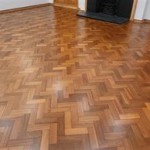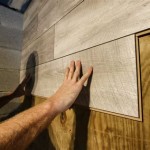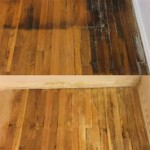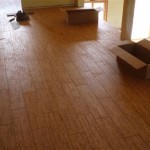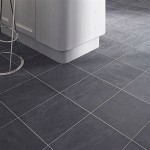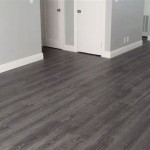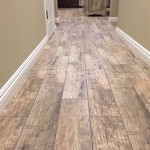Beading for Laminate Flooring: Essential Aspects
Beading, an indispensable element in laminate flooring installations, plays a crucial role in concealing expansion gaps and providing a seamless and professional finish. To ensure a successful beading installation, understanding its essential aspects is paramount. This comprehensive guide will delve into the key considerations, materials, and installation techniques associated with beading for laminate flooring.
Types of Beading
Beading varies in materials and profiles, each catering to specific installation requirements:
- Quarter Round: A classic profile designed to cover expansion gaps along walls and baseboards.
- T-Molding: Ideal for transitions between two laminate flooring surfaces running perpendicularly.
- Reducer: A transition piece used to connect laminate flooring to lower-height surfaces like carpet or tile.
- End Cap: Conceals the exposed ends of laminate flooring, providing a clean and finished look.
Material Considerations
When selecting beading material, consider durability, aesthetics, and moisture resistance:
- Wood: Provides a natural and elegant appearance, but requires regular sealing to prevent moisture damage.
- Plastic (PVC): Durable, waterproof, and available in various colors and finishes, making it a versatile choice.
- Metal: Strong and scratch-resistant, often used for commercial applications.
Installation Techniques
Proper installation of beading requires precision and attention to detail:
- Prepare the Expansion Gap: Leave a sufficient gap (typically 1/4 to 1/2 inch) between the laminate flooring and walls to allow for expansion and contraction.
- Cut the Beading: Measure and cut beading to the appropriate length using a miter saw or a sharp hand saw.
- Apply Adhesive: Apply a thin bead of construction adhesive to the back of the beading, ensuring even distribution.
- Install the Beading: Carefully position the beading over the expansion gap, gently pressing it into place until the adhesive sets.
- Secure with Nails: For additional stability, use small finishing nails or a brad nailer to secure the beading to the floor or wall.
Maintenance and Repair
Maintaining and repairing beading is essential to ensure its longevity:
- Regular Cleaning: Sweep or vacuum beading regularly to remove dust and debris.
- Avoid Excess Moisture: Protect beading from excessive moisture by promptly wiping up spills and avoiding direct water contact.
- Repair Scratches: Minor scratches can be filled with wood filler or matching paint.
- Replace Damaged Beading: If beading becomes severely damaged, it should be replaced to maintain the integrity of the flooring installation.
By understanding the essential aspects of beading for laminate flooring, homeowners and contractors can ensure a professional and durable installation. From selecting the right materials and profiles to following proper installation techniques, these guidelines will empower you to achieve a seamless and aesthetically pleasing flooring finish.

Flooring Scotia Rustic Oak 2m Homebase

Vitrex Flooring Border Profile Natural Oak 2m Homebase

Flooring Scotia Beading Trim Just 3 99 Each Save 55
Laminate Flooring Flexible Wood Effect Scotia Beading Patent Granted 62 C 24 99 Pic

Stowe Oak Laminate Flooring Homebase

New Design Basestation Cord Wrap Compatible With Most Irobot Roomba

Fusion Grey Oak 12mm V Groove Laminate Flooring Floors Dir

Kronospan Original Super Natural Rockford Oak Laminate Flooring 12mm Pack Size 1 48m2 Travis Perkins

How To Fit Scotia Beading Diy Project

Rigid Core Luxury Vinyl Flooring Coastal Light Grey Plank Homebase
Related Posts

